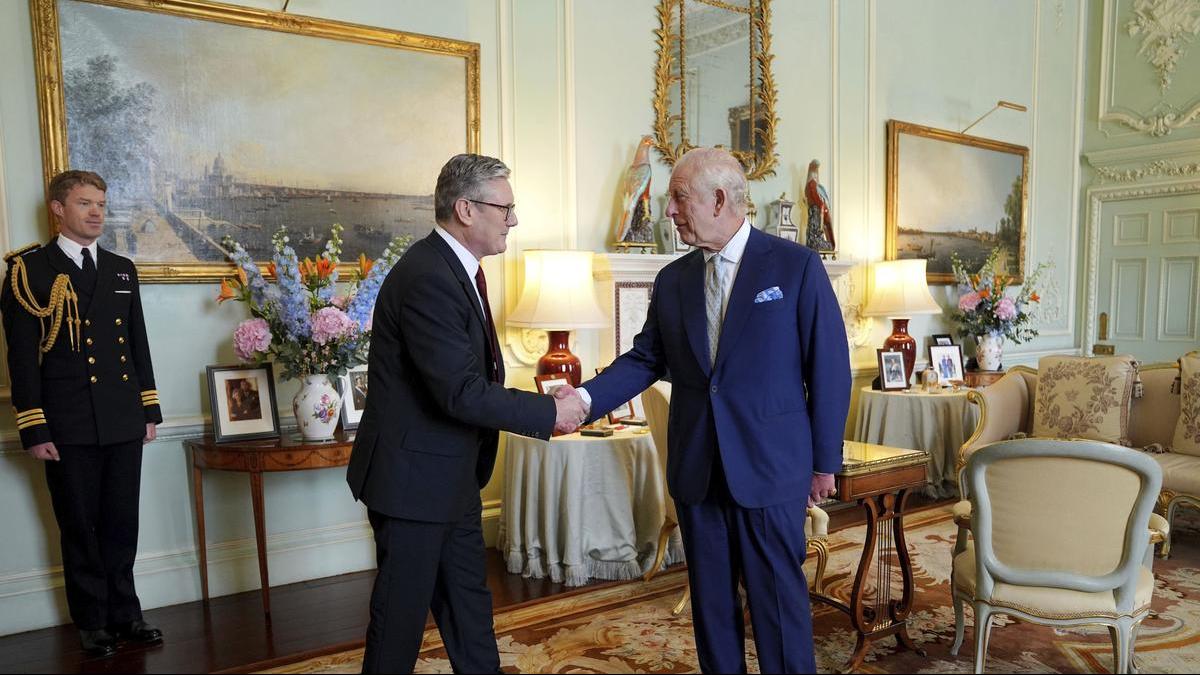(This article is part of the View From India newsletter curated by The Hindu’s foreign affairs experts. To get the newsletter in your inbox every Monday, subscribe here.)
For many across the world, the poll outcomes of the United Kingdom, Iran, and France herald some relief and hope, as they broadly reflect a setback for conservative parties and right-wing forces.
After 14 years in power, the Tories were finally voted out, while newly elected Prime Minister Keir Starmer has pledged to “begin the work of change”. Our London-based correspondent Sriram Lakshman tracked the election and its outcome closely. Notably, five independent pro-Palestine candidates, including former Labour Party leader Jeremy Corbyn, won in the U.K.’s general elections, in the wake of Israel’s devastating war on Gaza, which many voters deemed a key poll issue.
While the results have been welcomed by many, it is also important to be mindful of the remarkable performance of ultra-right wing leader Nigel Farage, who won after losing seven times, and his party, Reform UK, that won more than 14% of the vote, albeit only four seats. As The Hindu editorial observed, this will be a worry in the context of the party’s openly xenophobic rhetoric against immigrants. It also brings to the fore the challenge in sustaining the new regimes amid the political and economic crises facing the world.
Wasting no time settling in, Mr. Starmer spent his first few hours in the office holding phone calls with U.K. allies and partners, including Prime Minister Narendra Modi. “Discussing the Free Trade Agreement, the Prime Minister said he stood ready to conclude a deal that worked for both sides,” Downing Street said, describing the India-UK relationship as “strong and respectful”.
Meanwhile, in Iran, reformist candidate Masoud Pezeshkian won the presidential runoff election, besting hard-liner Saeed Jalili. A protege of former reformist President Mohammad Khatami, the surgeon-turned-politician assumes the presidency at a time when the Islamic Republic is witnessing social tensions and economic woes at home and heightened geopolitical risks abroad. His supporters want reform, but the establishment wants the status quo. Mr. Pezeshkian’s challenge is to do what even his mentor, Mohammad Khatami, failed to do: bring in incremental reforms at home, steady the economy, and stabilise Iran’s ties abroad, writes Stanly Johny in this profile of the new President.
The victory of Mr. Pezeshkian, a reformist who opposes moral policing of women and calls for engagement rather than confrontation with the West shows that the Islamic Republic, plagued by economic woes and social tensions, is still capable of springing a surprise. The rest of the world must do more to engage with reformists in Iran, The Hindu’s editorial on the poll outcome said.
As our newsletter reaches you today, all eyes are also on France, where the left is emerging as the biggest group in the new parliament but has yet to even agree on a figure who it would want to be the new Prime Minister.
How will these poll outcomes impact India? Our Diplomatic Affairs Editor Suhasini Haidar presents a detailed overview in her latest episode of Worldview. Watch here.
In the neighbourhood:
Sri Lanka’s Foreign Sabry Ali Sabry has said Colombo would lift the ban on foreign research vessels beginning next year. The ban was imposed in January 2024, after India repeatedly voiced concern about Chinese research vessels calling at Sri Lankan ports. Our report.
Reflecting the tricky India-China balancing act that governments in our region are forced to pursue, a leading member of the Bangladesh government has said India is a time-tested political friend of Bangladesh, and China is a friend necessary for Bangladesh to attain its developmental goals.
Meanwhile, days ahead of Bangladesh Prime Minister Sheikh Hasina’s visit to China, India’s envoy to Bangladesh Pranay Verma has identified ‘energy connectivity’ as a key pillar of the “transformative changes” that are shaping the India-Bangladesh relationship.
Should India review its Myanmar policy in view of the humanitarian crisis? Kallol Bhattacherjee spoke to former diplomat Rajiv Bhatia and human rights lawyer Nandita Haksar
